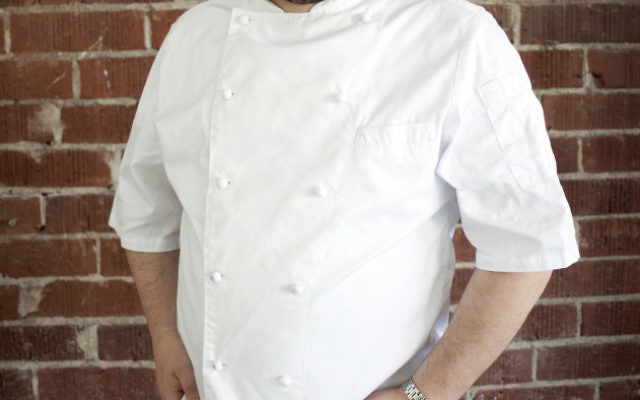Kirshtein Illuminates French, Southern Food
By Patrice Worthy
Eli Kirshtein, owner and chef of The Luminary, is a fan of culinary experiences that encourage a sense of engagement. He prefers to connect with the people eating his food, and that’s why he has been a staple of the Atlanta Food & Wine Festival since its launch in 2011.
As a Jewish Atlantan, he is known for creating dishes with a unique identity. The Luminary, a French-American brasserie in Krog Street Market, combines the familiarity of the United States with the relaxed elegance of Paris. His offerings include cocktails such as the Meghan Royale, a rosé slushie.
Kirshtein talks about how The Luminary and the food festival — being held from Thursday to Sunday, June 2 to 5, in Midtown — combine his love of French food, conversation and the South.
AJT: You’ve been involved with Atlanta Food & Wine Festival since the beginning. Tell me why you choose to come back every year.
Kirshtein: I kind of have been in a lot of different facets. I’ve done everything from classes to streetcar late-night kind of things. I’ve done brunches. I’ve done the whole gambit of it. I’ve always been appreciative to be part of it. I think the community is fantastic. I’ve always been really happy to be around friends and cook in a communal setting.

AJT: What will you be cooking at the private dinner this year?
Kirshtein: We’re going to be doing a foie gras au torchon with smoked catfish rillettes, pecans and peaches. I’m doing one course with Justin Devillier, Isaac Toups and Kelly Fields cooking with us.
AJT: What do you like most about AF&WF?
Kirshtein: I’m always looking forward to eating good food, seeing good friends and having a good time. Having done a lot of festivals across the country, I think it’s a unique festival because of how intimate and close you can be with the talent and see chefs and hang out with them. If you go to a restaurant in Midtown, you’re going to see all of them sitting around. It’s unique compared to other festivals for sure.
AJT: Krog Street Market gives you the same freedom to be intimate with visitors. Is that part of the reason why you chose this location for The Luminary?
Kirshtein: I always try to be available whenever I can be. We love Krog Street Market because first of all I live in the neighborhood. We love this neighborhood and love this part of town and this community. I’m an Atlanta native. I’ve always lived in the city. I’m not an OTP guy. I was born at Piedmont Hospital. So we really like being down in the middle of the city. We all have the activity of the BeltLine and Ponce City Market, and we love being a part of the community.
AJT: So you like to keep it local and in the neighborhood. How is The Luminary influenced by the South?
Kirshtein: The Luminary is a French-American brasserie; it’s regionally influence and updated. We work directly with local farmers for pretty much every product we purchase. It does get a little Southern influence.
AJT: Do you find there is a connection between French food and Southern food?
Kirshtein: I don’t find there is a strong connection between French food and Southern food. I always wanted to cook French food in a restaurant setting more because when you go to a French culinary school and work in French restaurants, it’s sort of going back to your roots. I think Southern ingredients are conducive to French cooking, but I don’t think there is a direct tie to the food itself.
AJT: In what way are Southern ingredients conducive to French cooking?
Kirshtein: Traditional French cooking is about really beautiful, quality products, and the South has a beautiful bounty itself.
AJT: How does the Jewish culture influence your cuisine?
Kirshtein: I came to embrace Judaism much later in my life, in my mid-20s, specifically through Birthright. I was consulting at a kosher restaurant in New York, and then I went on Birthright at the tail end of that. I think it just gives you a different perspective. …
I’ve been back to Israel. I’ve taken my wife there. I feel like especially around the holidays it’s very exciting for me take the way I cook and to incorporate it into traditional Jewish fare. For Passover, we don’t just do a brisket; we do a barbecue brisket. We use the charoset as a condiment for the brisket. We do gefilte fish fritters as opposed to just boiled gefilte fish. We’re able to change up and modernize a lot of it. I find that some of these ingredients transcend genres.




comments